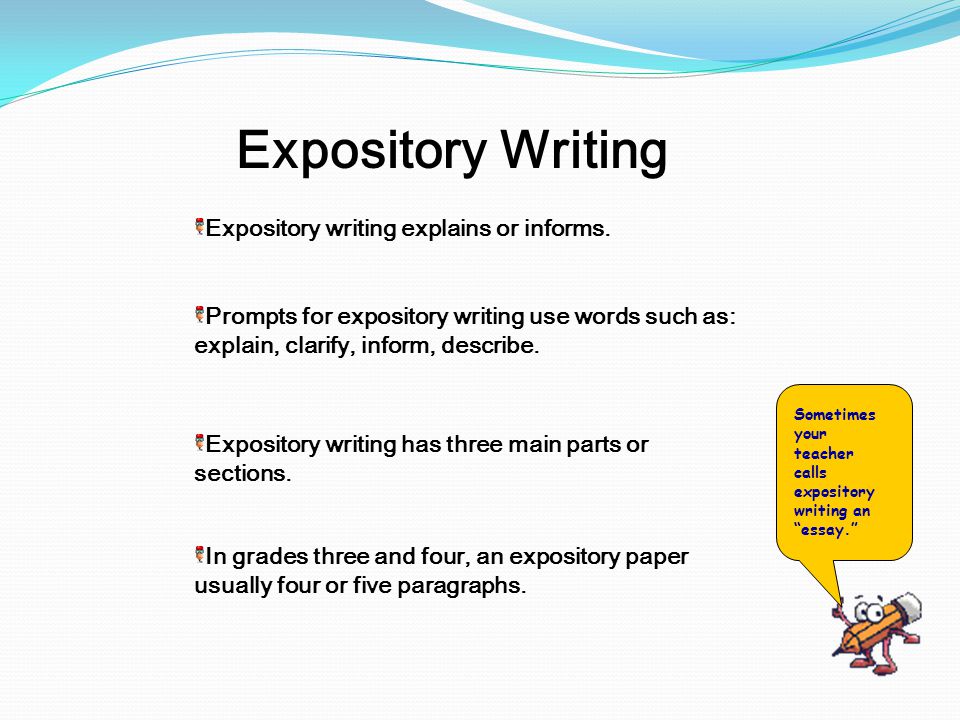If you want to learn how to write a good expository essay, you have to follow certain steps. First of all, you have to remember that the expository essay is not an argumentative piece of writing. Great research goes a long way, so try to include unusual examples. Next, you must have a strong thesis statement. It is also important to set aside time for editing. You can find a lot of examples of expository essays online.
Structure of an expository essay
The body of an expository essay should contain a thesis statement, main idea, and supporting evidence. Each paragraph should develop this idea and include an example or two to support it. The conclusion should tie everything together and leave the reader with something to think about. It should not present new information, but should wrap up the essay’s main points. After the introduction and the body paragraphs, the conclusion should summarize the ideas and the thesis.
The body of the expository essay consists of individual paragraphs that present details related to the thesis. These paragraphs typically include a topic sentence, evidence, and a transition to the next body paragraph. An expository essay can be as simple as presenting a theory or explaining a process. There are many types of expository essays, but all must present information in a structured and logical way. A clear thesis statement, introduction, body, and conclusion will help readers follow your argument and avoid misunderstandings.
Body paragraphs
The introductory sentence in an expository essay should state the main point of the body paragraph. This main point should be tied to the main idea of the essay and supported by two or three examples. If there is any evidence that undermines this main point, rethink it. The body paragraph should conclude with a concluding sentence that summarizes the main idea. Here are some tips to make this task easier.
The body of an expository essay should contain concrete subject matter that adds to the reader’s understanding of the topic. For example, it might include an explanation of how a smartphone app can improve your workplace productivity. Similarly, the conclusion should contain appropriate subject matter. Most students fail to understand the importance of the conclusion in this type of essay. The main requirement of the conclusion is not to include any new information, but to sum up what has already been mentioned.
Hooks
Choosing the right hook for your essay is essential. While it’s tempting to borrow statistics from credible sources, hooks should also be unique and relate to the topic. Hooks should be intriguing enough to pique your audience’s interest. In addition, they should suggest the perspective of the writer. Some examples of hooks are:
A metaphor hook uses a figure to make your audience think about the topic in a different way. A comparison hook uses something similar to your topic but makes readers question what you’re referring to. For example, you can start your essay by telling a memorable story. People like reading memorable stories, and your hook must be interesting enough to capture their attention. Listed below are some examples of good hooks for expository essays.
Research
Whenever writing an expository essay, it is important to cite outside sources to support the information you present. To do this, you can start your essay with a strong thesis statement. You can also discuss how propaganda, the role of an outside state, or even a president’s biased actions affect the country. However, keep in mind that you should only present the facts that enhance understanding. For example, if you are writing about the topic of natural borders and how they are being exploited by a foreign country, you can write a strong thesis statement on this topic.
In order to write a great expository essay, you should research a subject that interests you. You should look up relevant information and analyze it carefully before writing. You can write an expository essay about almost anything, but it is a good idea to choose a topic you are interested in so that you can find materials that will help you. Remember that you shouldn’t write your personal opinions, and it is better to avoid biased information. It is also a good idea to use simple language and group the information logically.

